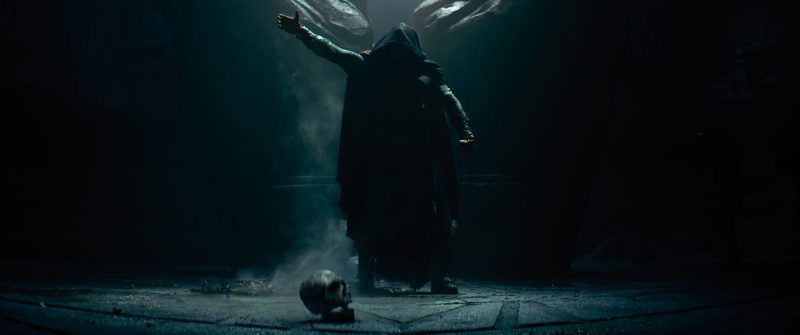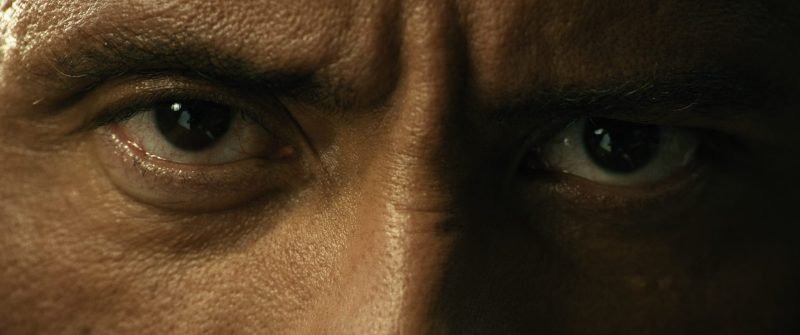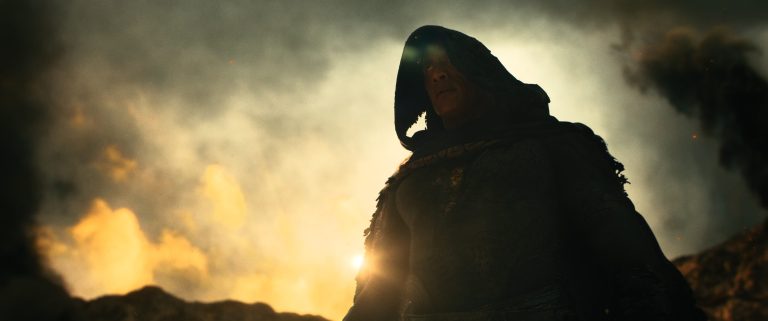Dwayne “The Rock” Johnson, the omnipotent Hollywood juggernaut, currently finds himself stuck between a rock and a hard place – both literally and metaphorically. The critically contentious, Black Adam, remains an indelible black mark in his illustrious career, not for the highs, but for the tumultuous waves it left in its wake. So what went wrong? Is it truly the “vortex of new leadership” at Warner Bros., as Johnson proclaims, or is there more beneath the surface?
Black Adam, the superhero film that could’ve been a resounding victory, instead became a metaphorical sacrificial lamb amidst Warner Bros’ constantly evolving hierarchy. Released in a nebulous period – two days following Walter Hamada’s resignation and a month before James Gunn and Peter Safran took the helm – the film found itself trapped between the starkly different regimes. It was like standing at the eye of a storm, seeing the looming chaos yet paralyzed to move.
Johnson’s vision for Black Adam was audacious. He reportedly pressured Warner Bros. to bring Henry Cavill’s Superman into the mix, setting the stage for an epic showdown in future movies. His ambition was clear: to refashion the DCEU in a direction that accentuated his role. While this might seem like a tactical maneuver for some, critics like Dominic Griffin saw it as an attempt to craft the universe in Johnson’s own image, labeling it a vanity project.
Indeed, the movie’s performance was far from its projected heights. Grossing about $400 million against a large budget exceeding $150 million, Black Adam fell short of being a resounding success. Johnson, ever the optimist, highlighted its respectable opening but acknowledged the significant absence of the Chinese market, which could’ve contributed an additional $100-$200 million. However, he vehemently attributed the film’s performance and its uncertain future in the DCEU to the studio’s internal changes. Likening it to an NFL team under new ownership, Johnson painted a picture of his character being sidelined, regardless of past victories.
One cannot ignore Johnson’s candidness. He openly criticized Warner Bros., especially concerning their handling of the DCEU’s Superman. In his conversation with Kevin Hart, Johnson elucidated the complications of frequent leadership changes, emphasizing how creative visions can often clash, leading to a project’s downfall. It’s a perspective that resonates with many who’ve witnessed the DCEU’s constant flux and lack of consistency.
With a production history spanning nearly 15 years, Black Adam suffered multiple setbacks. From its initial inception in 2007 to the directorial baton being passed until Jaume Collet-Serra took charge, to COVID-19 delaying filming, it was a project riddled with obstacles. Each leadership change, from the post-“Justice League” era to Warner Bros. becoming a subsidiary of AT&T, and eventually morphing into Warner Bros. Discovery, brought a distinct vision, often misaligned with its predecessors. This “identity crisis” starkly contrasts with the seamless narrative of the Marvel Cinematic Universe.

Post-release, while Warner Bros. and Johnson grappled with the film’s modest success, a significant blow was delivered: Black Adam and the DCEU are no more. Despite the initial announcement leaving room for Johnson’s return, the actor’s departure from the DCEU is now clear.
The actor’s grievances aren’t unfounded. Black Adam did outperform other DC films, especially considering the lackluster performances of movies like The Flash. But it begs the question: can a superhero movie, even with a star as big as Johnson, stand tall amidst corporate turbulence and shifting visions?
For Johnson, this tumultuous chapter is a lesson in the unpredictable world of filmmaking. He’s not the first, and certainly won’t be the last, to have projects affected by externalities beyond his control. But as he moves forward, fans worldwide hope to see the resilience and tenacity that made Dwayne “The Rock” Johnson a force to be reckoned with. Whether in the DC Universe or elsewhere, his journey is far from over.

But, hey, we can’t just count out Black Adam yet. After all, Wonder Woman 3, for some reason, is still a part of the DC Universe, as recently revealed.

